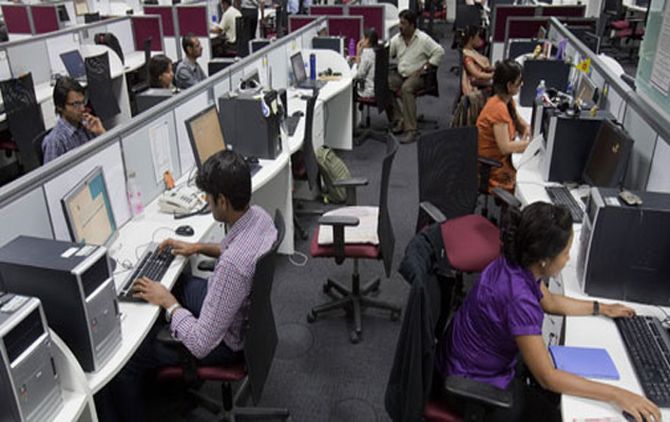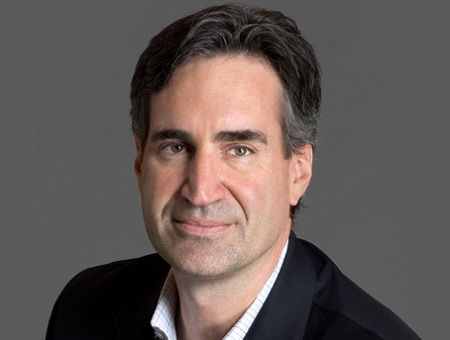Malcolm Frank, executive vice-president, strategy and marketing, Cognizant, in conversation with Shivani Shinde Nadhe & Ayan Pramanik.

Malcolm Frank (pictured below), executive vice-president, strategy and marketing, Cognizant, believes shareholder activism that the industry has seen in recent times is a result of the drastic changes in the sector and its impact on business.
In this interview he speaks about the reasons for this, and also acquisitions, automation and US regulatory changes.
Edited excerpts:
 At a time when the sector is seeing tech disruptions, we also see instances of shareholder activism. Cognizant, too, had a similar experience last year. Why do you think shareholders are getting into the activist avatar?
At a time when the sector is seeing tech disruptions, we also see instances of shareholder activism. Cognizant, too, had a similar experience last year. Why do you think shareholders are getting into the activist avatar?
Our industry has enjoyed a 15-year window, where the business model was clear, the human angle was clear and value proposition was understood. We were just competing around the edges.
For Cognizant, 10 years back, we had a two-in-a-box strategy: We built industry expertise and we focused more on the US. And, there were just 5 per cent changes to the basic model. It was successful for us and for the industry.
But now, we are in another world, which is both interesting and challenging. There are opportunities up for grabs.
So, if you are in the services sector, you have to balance your investors, employees and customers. I think these three were relatively stable till now.
There are now new questions.
How do we build the pyramid?
What is the culture we want to build within the company?
How quickly and hard should I push the culture?
When the investors see these changes, they ask questions on governance, on margins, and growth. There is an attempt to balance these things.
I think the transition will increase.
Will the noise increase? That will depend on the management teams, and how well they figure this out.
At Cognizant, managing the shareholders was peaceful. The board and the management have incorporated almost everything they suggested.
Any situation with a shade of activism or what some of our competitors are going through occurs because of the paucity of time. There is a six- to 12-month window to resolve an issue. I wouldn't give up on the future of a company five or 10 years down the line to make the problems of 2017 go away.
What happened with Elliott [Management Corp] was this: We had a strategy process called Cognizant 2020 for some time now. We rolled out some of that in summer last year; we are rolling out some now. Elliott wanted to know what was going to be implemented.
Cognizant has spoken about striking a balance between investments on acquisitions and capital return from its $5-billion cash pile as part of the Cognizant 2020 strategy. Tell us more about it.
This is part of the strategy process.
We are sitting on a large cash pile. Our M&A (mergers and acquisitions) philosophy has not changed. We acquire for capability, not capacity. We have a String of Pearls strategy.
We have set our eyes on a couple of scale acquisitions over the next five years, such as TriZetto. We would also look at small, digitally focused firms we can afford to acquire.
If you do go for scale acquisition what gaps are you trying to fill?
We are thrilled with TriZetto. We would like to find such platforms to get a flavour of other sectors. But these are far and few.
Do you expect dilution of the Patient Protection and Affordable Care Act or strict H-1B visa norms in the US to impact your overall performance?
I do not know.
The visa issue has been there for 15 years. We have contingency plans.
If you read [US President Donald Trump's proposed] executive order, the situation might seem worse than it actually is. If it comes out, the situation might change.
We are focusing on things we can control such as hiring in the US, delivery centres etc.
Is it time for the industry to relook at its delivery system, especially with the regulatory changes in sight?
I do not think so.
What India has delivered to the world is nothing short of extraordinary. I equate this phenomenon to the high fashion, which has its base in northern Italy.
That said, does the immigration system need to be cleaned up? If yes, it should be.
But to say that the fundamental structure of this industry is under question will not be correct.











